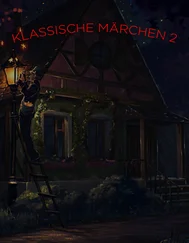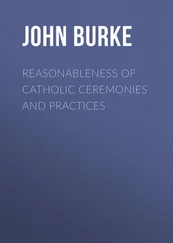T Klein - Ceremonies
Здесь есть возможность читать онлайн «T Klein - Ceremonies» весь текст электронной книги совершенно бесплатно (целиком полную версию без сокращений). В некоторых случаях можно слушать аудио, скачать через торрент в формате fb2 и присутствует краткое содержание. Жанр: Ужасы и Мистика, на английском языке. Описание произведения, (предисловие) а так же отзывы посетителей доступны на портале библиотеки ЛибКат.
- Название:Ceremonies
- Автор:
- Жанр:
- Год:неизвестен
- ISBN:нет данных
- Рейтинг книги:3 / 5. Голосов: 1
-
Избранное:Добавить в избранное
- Отзывы:
-
Ваша оценка:
- 60
- 1
- 2
- 3
- 4
- 5
Ceremonies: краткое содержание, описание и аннотация
Предлагаем к чтению аннотацию, описание, краткое содержание или предисловие (зависит от того, что написал сам автор книги «Ceremonies»). Если вы не нашли необходимую информацию о книге — напишите в комментариях, мы постараемся отыскать её.
Ceremonies — читать онлайн бесплатно полную книгу (весь текст) целиком
Ниже представлен текст книги, разбитый по страницам. Система сохранения места последней прочитанной страницы, позволяет с удобством читать онлайн бесплатно книгу «Ceremonies», без необходимости каждый раз заново искать на чём Вы остановились. Поставьте закладку, и сможете в любой момент перейти на страницу, на которой закончили чтение.
Интервал:
Закладка:
As the road wound inland now, Freirs looked back. Just before the house was lost from view behind a wall of boxwood, he glimpsed something in one of the upstairs front windows – something that, for all the intervening distance, looked singularly like a face, frowning at them from the darkness.
Mrs Poroth, more than nine years a widow, stood at the top of the stairs, watching the truck till it disappeared up the lane. Sunlight slanted through the small square windowpanes, setting in relief the rock-hard features, the strong, almost hawklike nose and masculine jaw, the tiny sharp lines where the corners of her mouth turned down as if with grief. And she had cause for grief. The vision had been confirmed; her prophecy had proven correct. Many a woman would have wept.
On a normal Sunday afternoon in spring she'd have been outside, silently absorbed over her lilacs and rosebushes. But today, after the hours of worship that had filled the morning, the songs and invocations to the Lord, offered up this week at the home of Brother Amos Reid, she had returned to her cottage and stationed herself by the window, waiting pale and troubled for her son's truck to pass, determined to see the visitor it would be bringing before he saw her.
And she had seen him.
Like one in a dream, she made her way with slow, unthinking footsteps down the ancient staircase and through the lengthening shadows of the front room, moving absently toward the door. Stepping outside, she gazed unsmiling at the garden. A haze had passed before the sun; the countryside lay bathed in amber light. Honeybees poked drowsily among the rows of blossoms spread across the south face of the hill. Framed as she was within the doorway, her hair still black, though touched of late with streaks of charcoal grey, and her shapeless black dress reaching almost to the floor, she seemed the only truly dark thing in the landscape.
There was too much to think about now, events too grave to contemplate; her mind refused, for the moment, to grapple with them and turned instead, from force of habit, to the mundane concerns of earth and leaf and weather. She surveyed the ranks of blossoms with a practiced eye, the flower beds extending down the slope past scattered clumps of rosebushes and lilacs to the banks of the stream. The season had, so far, been a warm one, just as she'd foreseen, and all the signs now pointed to a summer of unusual severity. The tulips and hyacinths had already begun to wither on their stalks, and the lavender, she knew, would be opening too early, perhaps within the week. She would have to harvest it soon.
The lilac bushes, too, had blossomed early – a month ago, in fact -though by tradition they should not have reached their fullness till today, May first, the Beltane: sacred, some believed, to Baal's teine, the ancient god's sacrificial fire. Legend said that, on this day, one who bathed in lilacs' dew would be granted beauty for a year.
The legend held no charm for her. The time of her beauty was past, and she was past mourning it. There was no one on earth that she cared about, not even her only son, Sarr. The lilacs' time was past as well; soon they too would wither and turn brown.
Stepping from the doorway, the air around her humming with cicadas and bees, she strolled morosely among the ordered rows of flowers. Their lives, though brief, had always been vastly more interesting to her than people's. The crocuses and snowdrops were long dead and the daffodils dying, but the peonies and baby's breath had just begun to bloom, and a few other species were now at the height of their season: the blue and purple columbines whose leaves, when grasped, brought courage to the fearful; the delicate pink gillyflowers, sprung from Mary's tears, whose petals could be used for divination; the lilies of the valley – born, it was said, from the blood a saint had spilled fighting dragons in the forest – whose cup-shaped blossoms, properly prepared, were an aid to failing memory.
Not that she herself had need of memory aids, or courage, or divinatory powers. She forgot nothing, feared little, and foresaw far more than she cared to. The Lord, in His harsh wisdom, had singled her out from the rest. He had shown her shadows of the future, tormented her with visions of the world to come. He had seen to it that, despite what good befell her, she would never be happy for long.
It had not always been this way. She had been born with certain 'gifts,' as the Brethren called them, a certain wayward talent for prediction or the lucky guess, for reading secret thoughts from people's faces; but such gifts were common to the women in her family. Others before her had known them.
They were a small people, the Troets, given more to scholarship than farming, which set them apart from the rest of the community; yet in some ways their strength lay far deeper than the farmers'. It had always been, curiously, a female's strength, expressed not in the usual human terms of opposition to nature, or in futile attempts to master or control it, but in a kind of day-to-day alliance with its laws. Nature had, in turn, rewarded them; the Troet women – one or two, at least, each generation – had been blessed with certain powers of intuition, as if they were in touch, more directly even than the farmers, with aspects of some fundamental process: rainfall and impending winds, vegetation's cycle, the changing of the seasons and the moon. Mrs Poroth remembered her own maternal grandmother, a Buckhalter by name but a Troet by descent, who could read approaching weather in a cockcrow or a certain slant of light, and who'd speak familiarly of 'little signs' that others had ignored. It had been a gift beyond her ability to explain; when asked about it-as, when still a child, her granddaughter had asked – the old woman would say simply, with an indifferent shrug, that there were 'other ways of knowing.'
Mrs Poroth herself, it was believed, had inherited some of these powers; as a little girl she'd begun to understand, in a primitive way, how to let the world speak to her through the smells and colors of flowers, the shapes of leaves and clouds. But there'd been nothing truly exceptional about her talents – until that summer morning of her thirteenth year when, on the day after her grandmother's funeral, drawn by some unaccountable impulse to climb the stairs to the old woman's attic, she had discovered the Pictures.
They had been inside a folder tied with ribbon, crushed beneath a pile of dusty books in the darkest corner of the room. The renderings were crude, the sort of things a bright nine-year-old boy might have produced. They were drawn in luridly colored chalk on cheap rag paper, yellow and cracking around the edges and stiff with age. They looked at least half a century old.
Her eyes had widened as she sifted through them; she'd felt the sudden pounding of her heart. Crude though they were, the images had stood out from the cracked and yellowed paper with terrifying clarity. There were twenty-one drawings in all, each on a separate sheet and each, in its own way, filling her with inexpressible horror. There was a white birdlike thing with blood upon its breast, dying; a pool of dark water, with the hint of something crouched beneath it; a pale yellow book, fat and somehow repellent; a low earthen mound of odd proportions, and a red satanic-looking sun, and a cold oppressive moon, and a round white shape against a black background that she first took for another heavenly body, a planet or a moon, until suddenly, with a shudder, she saw it for what it was, a great round lidless eye…
Some of the Pictures were so queer she couldn't tell what they were meant to be. Like the slim black sticklike object; and the things that looked like dogs, only so badly drawn it was hard to be sure; and a pulpy thing that might be a coiled worm and might be smiling lips; and another figure, small, dark, and shapeless, with the half-formed look of dead things and decaying leaves, like a child's attempt to draw some creature he had heard about but never seen.
Читать дальшеИнтервал:
Закладка:
Похожие книги на «Ceremonies»
Представляем Вашему вниманию похожие книги на «Ceremonies» списком для выбора. Мы отобрали схожую по названию и смыслу литературу в надежде предоставить читателям больше вариантов отыскать новые, интересные, ещё непрочитанные произведения.
Обсуждение, отзывы о книге «Ceremonies» и просто собственные мнения читателей. Оставьте ваши комментарии, напишите, что Вы думаете о произведении, его смысле или главных героях. Укажите что конкретно понравилось, а что нет, и почему Вы так считаете.












